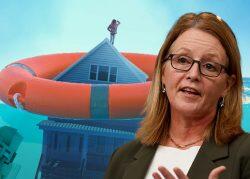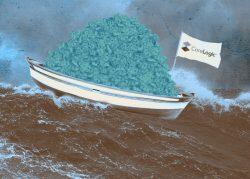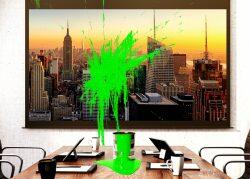The Hole is still living down to its name, two decades after the city first moved to address problems in the low-lying, flood-prone neighborhood.
The small neighborhood on the border of Queens and Brooklyn sits below the city municipal network, depriving most of the homes of the sewer system. The City reported stalled plans have left residents plagued by problems with flooding, dumping and garbage management.
“Everything inside the house is pretty peaceful, but when you step outside the door, you have to deal with all the water issues, the garbage issues,” one resident told the outlet. “It’s not really appealing.”
Left without the option of the city sewer system, many homes use septic tanks. But those have a tendency to overflow when it rains, creating disastrous results in even bigger storms, such as Hurricane Ida, which left the neighborhood waterlogged for weeks.
The city initiated efforts to fix problems in The Hole two decades ago. Mayor Rudy Giuliani proposed elevating the streets so sewers could be installed, a project originally estimated to cost $37 million. The city has spent at least $2.6 million on work in the neighborhood so far, according to records reported by the outlet.
The latest request for proposals was sent out in 2019, but remains on hold, according to The City. The RFP aimed to reconstruct a handful of streets, along with installing storm and sanitary sewers and water mains.
Read more



The community is now looking for relief in any way it can find it, especially as homeowners incur the costs of floods and septic tanks. Community groups are calling for influence in the design of the project and a reassessment of property taxes for those who can’t use the city sewer system.
Others, however, are thinking of leaving The Hole behind altogether. Some are calling for it to be rezoned for commercial use or having the city purchase homes so the area can be redeveloped, something City Hall is reportedly considering in flood-prone areas.
“I’m sad to say this is just yet another example of a place in New York City where probably people shouldn’t be living,” Eric Sander of the Wildlife Conservation Society told The City, citing the problems that will come with further climate change.
[The City] — Holden Walter-Warner
